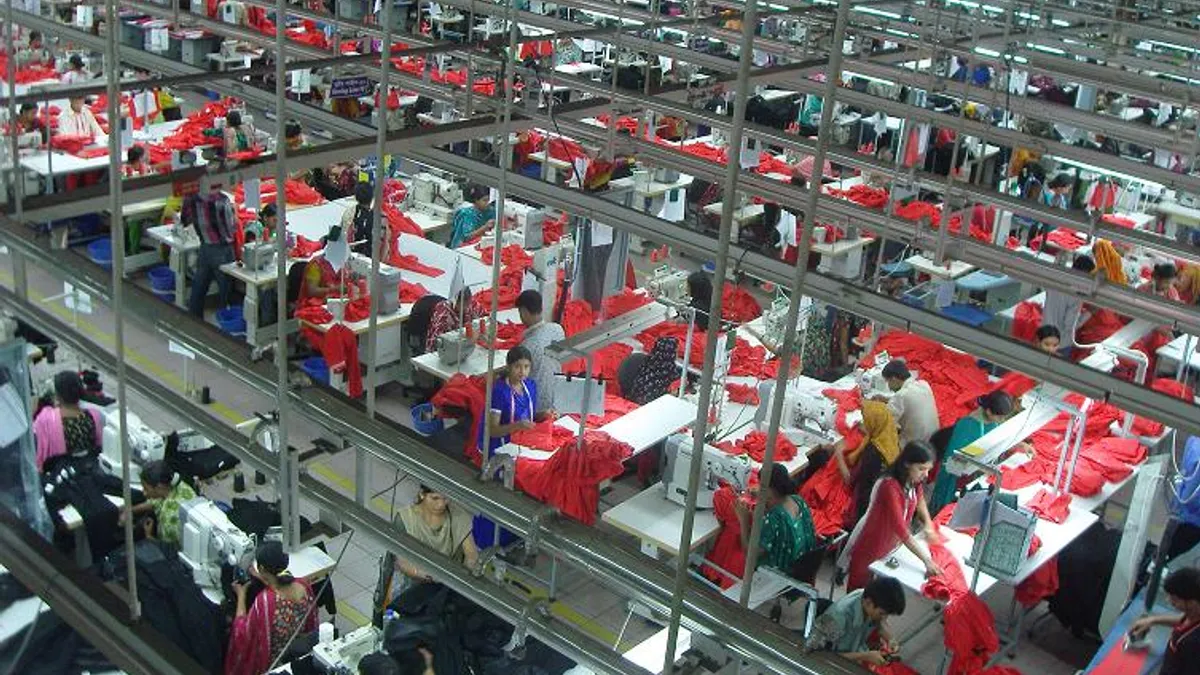Dive Brief:
- Forced labor remains pervasive in apparel and footwear supply chains, with companies disclosing reports to Know the Chain scoring an average of 37 out of 100 based on their actions to address forced labor and abuse. Among the lowest-scoring brands are Asian retailers, along with footwear brands Foot Locker and Skechers and luxury brands LVMH and Prada.
- Of the 19 companies included in both its 2016 and 2018 studies, the average score increased from 49 to 56 out of 100, despite tougher standards the second time around. Adidas, Hugo Boss, Kering, Lululemon, Nike, PVH, Ralph Lauren and VF all improved their scores from 2016 and Adidas, Lululemon and Gap scored among the highest.
- Brands continue to fall shortest in the area of recruiting, where only four companies of the 43 total included in the study reimbursed recruitment fees to workers in their supply chains.
Dive Insight:
Forced labor gestates in complex, opaque supply chains, and apparel is both. Know the Chain said forced labor is particularly common far upstream in the supply chain, in cotton fields, rubber forests, cattle ranches, silk farms and in the production of garment industry basics like yarn.
"The risks within the apparel sector are pervasive and endemic at each stage of production, occurring across continents, in supply chains from fast fashion to luxury brands," according to the report. Along with price point, the size of the company has no bearing on whether or not forced labor persists within a supply chain.
According to the International Labour Organization (ILO), an estimated 24.9 million people worldwide are victims of forced labor — 16 million in the private sector. Women and migrant workers are particularly at risk in apparel production because those populations make up the majority of the industry's workforce.
The pervasive issues with "recruiting fees" offer a stark look at how these industries operate. In some cases, factories use employment agencies to find workers, and the workers are responsible for the recruitment fee charged by the agency — sometimes thousands of dollars, or years of wages. Since the legal employer in this common scenario is the agency, the factory then pays the agency for the time worked, and agencies garnish the workers' wages to pay the fee.
Adidas and Lululemon, two of the highest scoring brands overall, are the only two companies assessed that require their suppliers to employ workers directly not using an employment agency as the legal employer.
"Both companies also demonstrate stronger action in the lower tiers of their supply chains compared to their peers, disclosing that they audit below the first tier and report on audit outcomes for their second-tier suppliers. They are the only companies to provide evidence that their grievance," according to the report.
In October, 123 members of the American Apparel and Footwear Association signed a commmitment to responsible recruiting, pledging to rid their supply chains of abusive recruitment practices such as workers paying for their jobs; workers travel documents being confiscated and movement restricted; and workers not being informed of the basic terms of their employment before joining the workforce.
The signatories pledged to add these commitments to their internal standards by the end of 2019 and report on progress "periodically."















